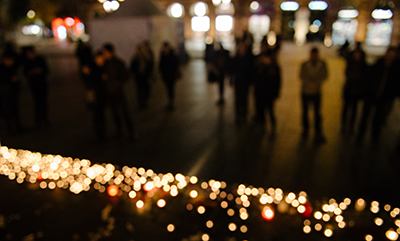Social Media Useful in Detecting Post-Disaster Mental Health Needs.
 Space-time analyses of social media in the immediate aftermath of mass traumas can be useful in identifying populations in need of mental health services, according to a novel study by a team of researchers that includes Sandro Galea, dean of the School of Public Health.
Space-time analyses of social media in the immediate aftermath of mass traumas can be useful in identifying populations in need of mental health services, according to a novel study by a team of researchers that includes Sandro Galea, dean of the School of Public Health.
Writing in The Lancet, Galea, the study’s senior author and BU’s Robert A. Knox professor, and fellow researchers said their analysis of tweets in the three days after the November 13, 2015, terrorist attacks in Paris had identified statistically significant geographic “clusters” of fear and sadness in areas near the attack sites. The “fear” cluster was located around the Place de la Republique, where a firecracker went off two days after the attacks; the “sadness” cluster was further east, encompassing the Boulevard Voltaire, where a restaurant attack occurred.
The researchers analyzed geo-located Twitter data within a 15 km radius of the center of Paris between Nov. 13 and Nov. 16, comprised of more than 28,000 tweets. They classified each tweet into basic emotions, such as anger, confusion, fear, and sadness, and then used a spatial-temporal model to detect significant point locations and clusters.
“Automated sentiment analysis can extract emotional reactions from these data, and space-time syndromic surveillance can effectively detect disease outbreaks,” the authors wrote. “No academic efforts, to our knowledge, have combined these approaches to identify areas of particularly pronounced emotional reactions as a way of anticipating post-disaster psychological need.”
They said that, if refined and applied in real time, “This approach could detect emerging areas of post-disaster emotional reactions and provide guidance for the provision of mental health services in affected areas.” Early emotional responses are predictive of long-term psychological needs, they noted.
Oliver Gruebner, a researcher at the Harvard T.H. Chan School of Public Health and former postdoctoral trainee working with Galea, led the study. Other contributing authors are from Loughborough University in the UK, Montclair State University, Wilfrid Laurier University in Ontario, and Cochrane France.